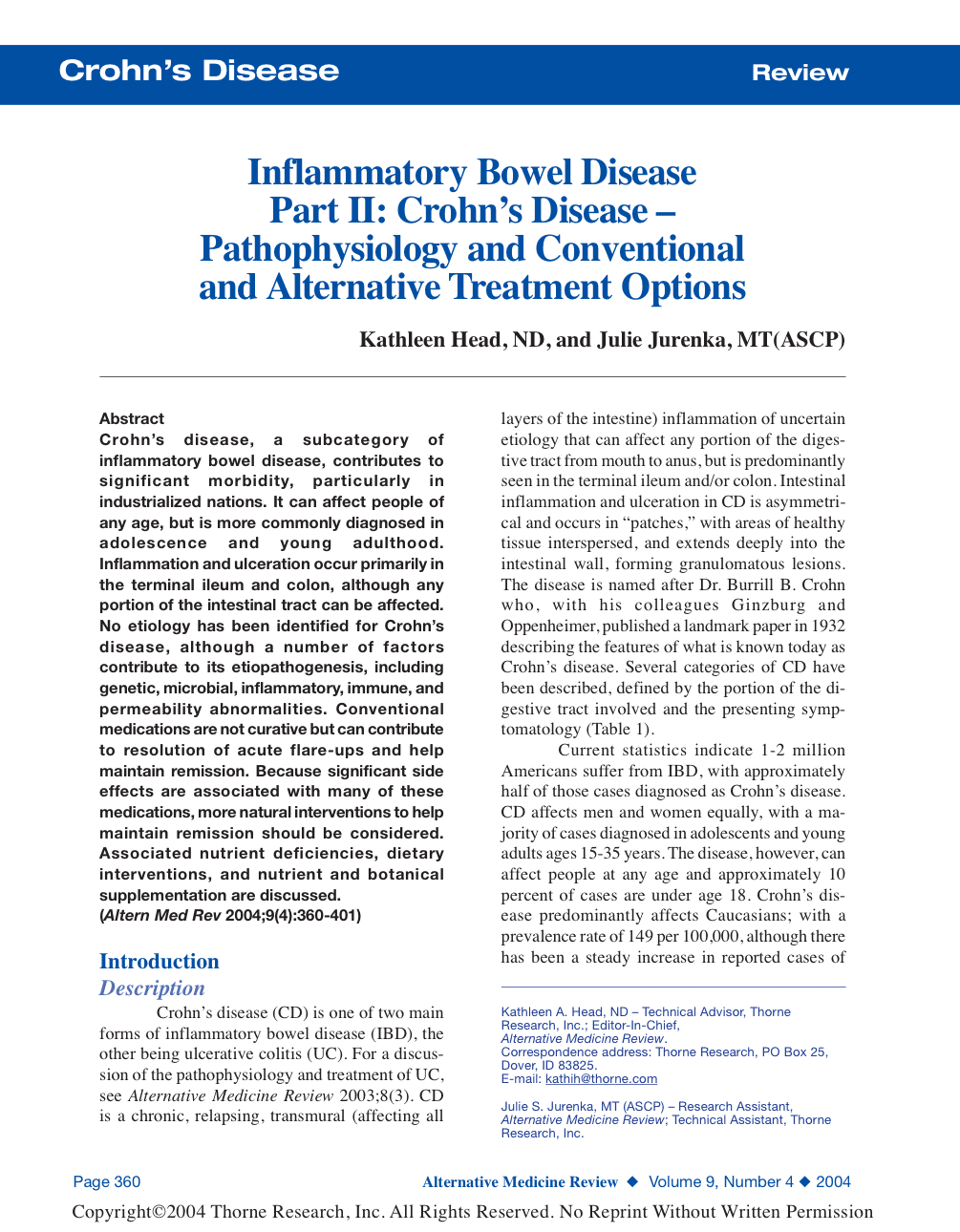Abstract
Crohn’s disease, a subcategory of inflammatory bowel disease, contributes to significant morbidity, particularly in industrialized nations. It can affect people of any age, but is more commonly diagnosed in adolescence and young adulthood. Inflammation and ulceration occur primarily in the terminal ileum and colon, although any portion of the intestinal tract can be affected. No etiology has been identified for Crohn’s disease, although a number of factors contribute to its etiopathogenesis, including genetic, microbial, inflammatory, immune, and permeability abnormalities. Conventional medications are not curative but can contribute to resolution of acute flare-ups and help maintain remission. Because significant side effects are associated with many of these medications, more natural interventions to help maintain remission should be considered. Associated nutrient deficiencies, dietary interventions, and nutrient and botanical supplementation are discussed. (Altern Med Rev 2004;9(4):360-401)







